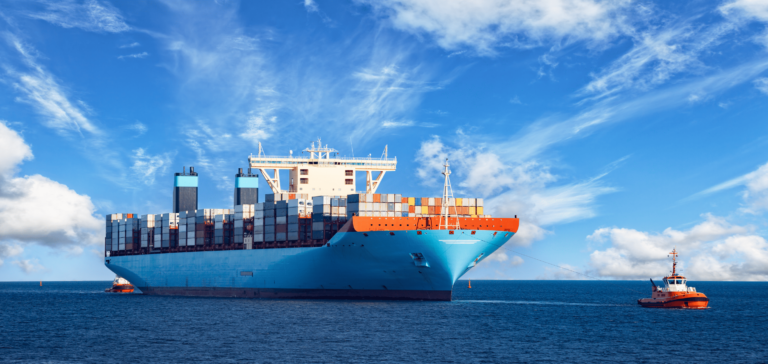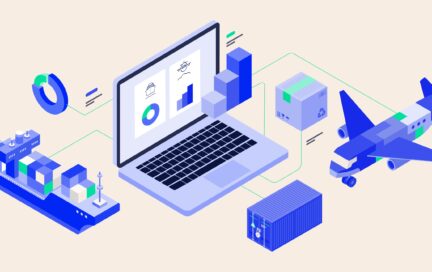- Ocean freight shipping makes up 2.4% of global CO2 emissions
- Shippers looking toward carriers to provide sustainable ocean freight solutions
- Carries are offering more sustainable solutions such as fuel-efficient projects, biocide-free marine coatings, and wind propulsion technology
According to the UN’s International Maritime Organization, ocean freight shipping makes up about 2.4% of global CO2 emissions. Even though this is small in comparison to road freight at 16.8%, Reuters notes that by 2050, the UN group expects CO2 emissions from ocean vessels to rise between 50% and 250% as long as the shipping business remains “as usual”.
As a result, the International Maritime Organization is requiring merchant ships to cut the amount of sulfur emitted into the atmosphere by 2020. According to the consulting firm, Wood Mackenzie, this could result in a $60 billion price tag for shipping lines. The cost is based on industry analysis that takes two potential consequences into account:
- Possible confusion over which carriers comply with the new rules could lead to some vessels being barred from making deliveries, which would disrupt shipments. According to the Deputy Secretary General of Baltic and International Maritime Council (BIMCO), “We are talking about 2.5 million to 4 million barrels a day of fuel oil to basically shift into a different product.”
- Oil refiners still don’t have enough capacity to supply all the fuel that would be needed.
Shippers
Groups of shippers are also seeking ways to require their carriers to adopt sustainable methods of transport. For example, Maersk Line has invested in refrigerated containers with cooling systems that produce less of an effect on the environment.
Carrier Transicold’s NaturaLINE is the first container refrigeration system to use the natural refrigerant carbon dioxide (CO2), which is a safe and non-ozone-depleting gas with a global warming potential of one.
Another example comes from CMA-CGM. Earlier this year, the carrier signed an agreement with Total S.A. in which Total S.A. will supply CMA-CGM with fuel oil with a sulfur content of 0.5%, fuel oil with a sulfur content of 3.5% for ships equipped with exhaust gas cleaning systems and liquefied natural gas (LNG).
In addition, shippers including AB InBev, AkzoNobel, DSM, FrieslandCampina and Huntsman have launched the BICEPS Network – Boosting Initiatives for Collaborative Emission-reduction with the Power of Shippers. The BICEPS Network aims to rank carriers from A to F based on their scores from a questionnaire that covers performance in five areas:
- Publication of sustainability information
- Actual emission scores and targets
- Improvement projects, and project statuses
- Collaboration of the carrier with the outside world
- Long-term horizon in relation to sustainability
Carriers
AkzoNobel, a member of the BICEPS Network, has been active even beyond the BICEPS Network in reducing shipping emissions. It has teamed up with Maersk Lines to further reduce carbon emissions per container shipped by 10%. By using AkzoNobel’s Intersleek biocide-free marine coatings, ship owners and operators have saved $3 billion in fuel and 32 million tons of CO2. According to the Biocides Directive (98/8/EC), biocidal products are intended to “destroy, render harmless, prevent the action of, or otherwise exert a controlling effect on any harmful organism by chemical or biological means”.
According to AkzoNobel, “Intersleek 1000 is the first fouling control coating to be based on Lanion technology, which incorporates bio-renewable raw material that helps to deliver enhanced vessel performance. This means hulls coated with Intersleek 1000 maintain an ultra-smooth surface, reducing drag and lowering fuel consumption and emissions.”
In addition, AkzoNobel and Maersk are also members of the Sustainable Shipping Initiative, a global coalition taking steps to make the sector more environmentally sustainable.
Maersk is delving further into sustainable shipping. Besides ordering 100 refrigerated containers that use carbon dioxide as a refrigerant, it also recently partnered with Shell, Norsepower, and the Energy Technologies Institute, to reduce shipping fuel costs and emissions by using wind-powered technology on a product tanker vessel.
The project is scheduled to begin in 2018 and will be the first use of wind propulsion technology on a product tanker vessel. The technology will undergo testing and data analysis at sea until the end of 2019.
Carriers are also implementing various fuel-efficient projects such as:
- CMA-CGM uses Tekomar XPERT engine diagnostics to optimize engine operation. As a result, CMA-CGM has saved hundreds of tons of fuel and consequentially reduced emissions.
- NYK Group upgraded vessels to improve fuel efficiency and switched to new ultra-large vessels that have highly fuel-efficient engines.
- Hapag-Lloyd utilizes vessel trim Optimization to create efficiencies including fuel consumption.
What’s Ahead for sustainable ocean freight?
Representing 90% of global trade, the global ocean freight market is playing a leading role in implementing sustainable solutions. Indeed, with global awareness of climate change at an all-time high, expect more collaboration between carriers, shippers as well as international organizations to spur innovative sustainable solutions.
Stay in the Know
Be sure to check out our website to see how we can help you manage your shipments in the most efficient way possible. While there, be sure to sign up for our newsletter as well as follow us on LinkedIn for the latest industry news and analysis.






